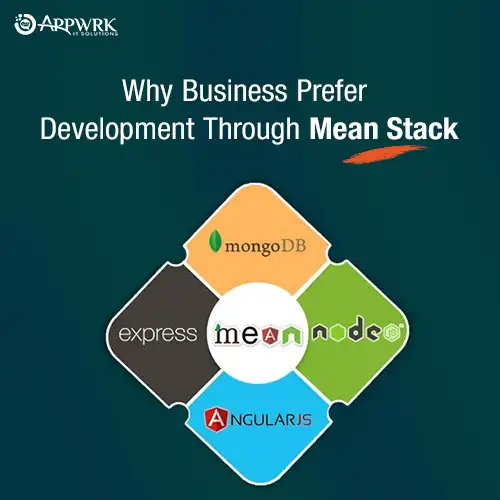How and Why to Convert HTML Website to ReactJS in 2025?
Gone are the days when websites were made of nothing but text and some basic static HTML. In today’s era of cut-throat online competition, many businesses are creating their websites using cutting-edge technologies like React JS. Due to React’s ease of use and innovative features, many businesses are converting their existing HTML websites to React. This blog covers a step-by-step explanation of how to convert HTML to React.
Besides, if you convert HTML to React JS, you can quickly eliminate all the flaws associated with the static nature of HTML-based web portals and create a top-notch website in no time. Used by both start-ups and established businesses, React JS brings many advantages to the table, making it a better choice than HTML websites. If you are looking for how to convert HTML to React JS, then keep reading this article as it will prove very helpful to you.
Steps to Convert HTML to React in 2025
Converting HTML to React website can be easier than some might think, that is, depending on the complexity of your web portal. Listed below are five steps to convert HTML to React.

Step 1: Turn pages into React components
When you convert HTML to React site, you need to turn web pages into React components. Furthermore, if you only have one page, you can create a folder called components under the SRC folder. Then, you need to create a single .jsx file there like an index.jsx. After creating the index.jsx file, create a React Component within an index.jsx, and then copy and paste the body of your static HTML file to the return statement of that component.
If your site has more than one page, make sure you create a separate pages folder under the SRC folder and create a .js file for each HTML page of your website. After that, create React components for each file or page and copy-paste the body of the HTML files into the React components.
Step 2: Fix syntax for converting HTML to JSX
After turning the web pages into React components, convert HTML to JSX. For this, you need to correct the syntax of your plain HTML code into the .jsx file. Furthermore, you need to make the following changes:
- Change class to className
- Change style props from strings to objects, and change the BBQ-casing of CSS props to camelCase
- End the self-closing tags
Step 3: Add CSS to React Components
Once you have corrected the syntax of your plain HTML to JSX, you need to add your CSS to the React components. Furthermore, create a styles folder under the SRC folder and put all your CSS files into that folder. Then, start importing the corresponding CSS for each page.
Step 4: Install dependencies of your web page
Installing the dependencies of your web page (i.e., Font-Awesome, Bootstrap, etc.) that were recently delivered via a content delivery network is recommended to be installed via npm or yarn. Furthermore, try to find the corresponding React module for your component and install it within your React app. After that, import them to their corresponding components/pages.
Step 5: Decompose pages within React environment
Finally, you need to break down each page into smaller, reusable components within React.
Are You Planning to Build Your Web App Using React JS Technology?
Hire React JS Developers From APPWRK and Save up to 50%
React vs HTML, What is the Difference?
Your static, HTML-based website may look good. Still, it has a few significant drawbacks, such as its static nature, compatibility issues, inability to render content in an aesthetically pleasing way, and, most of all, its overall complexity.
Furthermore, all web browsers can read HTML files and web pages; however, the language can be tough to decipher, mainly because a tiny typo could lead to a non-functioning web page. ReactJS, on the other hand, is a top-rated technology for software development. It allows developers to create top-notch websites with a better user interface, design, and structure without any hassle. Here are some differences between HTML and React JS. ReactJS not only enhances the development process but also offers the best software development solutions, ensuring scalability, maintainability, and performance optimization.
- Creation of dynamic pages
In the early days of the World Wide Web, no one expected a website to do anything other than display static pictures and words. However, with the advancement of technologies, internet users started expecting more out of their favorite web portals. Furthermore, features like search boxes that automatically generate suggestions based on input and infinite scrolling have become common in modern websites. However, basic HTML cannot achieve the features you would expect from a modern web portal. Instead, web developers need to learn additional languages like PHP or JavaScript to generate code snippets for adding dynamically generated content to the website.
- Ease of learning
Anyone who wants to create a web portal using HTML code may spend weeks learning HTML. Besides, with each major release, HTML is becoming more complex, and new tags are being added, forcing developers to spend valuable time learning how to implement the newly added features. React JS, on the other hand, is very easy to understand, which is one of the important reasons to choose React library. React JS provides a good supply of documentation, tutorials, and training resources. Not to mention, this language mainly deals with only the view layer. As it doesn’t take much time to learn this technology, you can quickly start creating a website with it.
- Performance on different browsers
Suppose you attempt to view the same site using three different browsers. You may be surprised that webpages are sometimes displayed differently depending on whether you use Google Chrome, Firefox, or Microsoft Edge. Usually, those minor changes affect the margin between the web portal’s main content and the browser window’s top. Some elements of the web page might need to be added completely if they rely on a new HTML tag or property that still needs to be implemented on the web browser the user is using. Besides, many tags from the most recent update to the HTML language, HTML5, are supported by only a few browsers. However, websites built using React JS don’t face this issue and work flawlessly on all browsers.
Comparative Table, HTML vs React
| Aspect | HTML | React JS |
| Dynamic Pages | Limited capability for dynamic content; requires additional languages like PHP or JavaScript for dynamic features | Supports easy creation of dynamic content without external languages like PHP; enables dynamic rendering |
| Ease of Learning | Complex syntax, learning curve with each major release adding new features and tags | Simple syntax, easy to learn with comprehensive documentation and tutorials; primarily focused on the view layer |
| Browser Compatibility | Displays differently across browsers; support for newer HTML features varies among browsers | Consistent performance across browsers; React handles cross-browser compatibility effectively |
| User Interface Design | Limited flexibility and customization; styling can be complex using CSS | Offers enhanced UI design and structure through component-based architecture; easier styling with CSS-in-JS or other styling approaches |
| Code Maintenance | Tedious, prone to errors with larger codebases; challenging to maintain and update | Easier maintenance with component-based structure; modular approach facilitates code organization and updates |
| Performance | Limited optimization; slower rendering for complex UIs | Optimized performance with virtual DOM; faster rendering for complex UIs; efficient updates without full re-rendering |
Why Should You Convert HTML-to-React?

Converting HTML to React brings your website to life with interactive components, making it more responsive and engaging for users. ReactJS Development simplifies updates and allows for easier management of complex interfaces as compared to HTML.
1. Easy creation of dynamic applications
Creating a dynamic application specifically with HTML strings used to be tricky because it requires complex coding. React makes it easier to create dynamic web applications since it needs less coding and provides more functionality, compared to JavaScript, where coding often gets complicated very quickly.
2. Easy to learn
Already have the essential knowledge of working with HTML and CSS? Well, then learning ReactJS would be a piece of cake for you. Furthermore, React JS makes it easy for any JavaScript developer to understand its basics and develop apps based on the technology. Not to mention, many resources available online will help you with everything related to ReactJS.
3. Flexibility
When compared to other front-end frameworks, the React JS code is easier to maintain and is flexible because of its modular structure. Furthermore, this flexibility, in turn, saves a lot of time and money.
4. Compatible with SEO activities
Another good reason to convert HTML to ReactJS is that it is SEO-friendly. No matter what type of business you run, if you want to get more traffic and increase your conversions, you should ensure your web pages rank high on search engine results pages. And here’s where React JS comes in handy. Using it, you can create SEO-friendly applications in no time.
5. Reusable components
Components in React JS are independent, reusable bits of code. Furthermore, each part of the components works following its own internal logic. How will this benefit the developers? You may ask. Well, this approach allows reusing these components. Obviously, this includes the reuse of the code also. Furthermore, when the React JS developers can reuse the codebase, it becomes extremely easy not only to handle the code but to grow it also.
6. Clean abstraction
When creating a new app using React JS or converting an existing HTML site to React JS, you do not need to follow or learn any particular architectures like MVVM (Model-View-ViewModel) or MVC (Model View Controller). All you need to do is understand the life cycles, props, and states of components, and you will quickly master the React JS language to get your work done.
7. The support of handy tools
React JS has also gained massive popularity due to the presence of a handy set of tools. These tools make the task of the developers simpler and more accessible. The React Developer Tools, a Firefox and Chrome dev extension, allows you to quickly inspect React component hierarchies in the virtual DOM. It helps select particular components and examine and edit their current props and state.
8. Performance boost
React JS boosts the performance of an application through its cutting-edge features like virtual DOM, which significantly enhances the speed of web apps by removing the heavy framework code present in bootstrapping libraries like jQuery.
9. It helps to build rich user interfaces
Let’s face it, creating an intuitive user interface can make or break your website. Needless to say, building rich user interfaces is sort of necessary for a website to survive and thrive.
10. Popularity
One of the main reasons to convert an HTML website to React JS is ReactJS’ popularity across the Internet. Thousands of companies, including numerous Fortune 500 companies, have chosen React JS for their websites and apps. US retail giant Walmart and leading social media platform Instagram are among the top brands that built mobile apps using the React JS framework.
Benefits of HTML to React Conversion
Conversion of HTML to React JS is beneficial when a dynamic HTML web application is directly converted to React JS. It is the most convenient option, rather than directly converting from Static HTML to React JS.
If you are working on a front-end UI that demands high user interaction, using React JS would be your best bet, as React JS takes care of the lower-level algorithm. That means you only need to focus on the interface’s view model. Along with that, React’s virtual DOM will be handy in improving the website’s performance and enhancing user experience.
Take Maximum Advantage of ReactJS with APPWRK
While there’s no denying that HTML is the language of the web, creating entire websites with HTML alone can be repetitive and hard to manage. React JS is a powerful tool for any developer who knows HTML and wants to build more organized and dynamic websites faster. By following the abovementioned steps, you can easily convert HTML to React JS. However, if you run into any issues during conversion, make sure you contact APPWRK IT Solutions. With cutting-edge technology, our highly skilled and seasoned React JS developers can help you convert HTML to React at affordable rates.
About The Author

























































